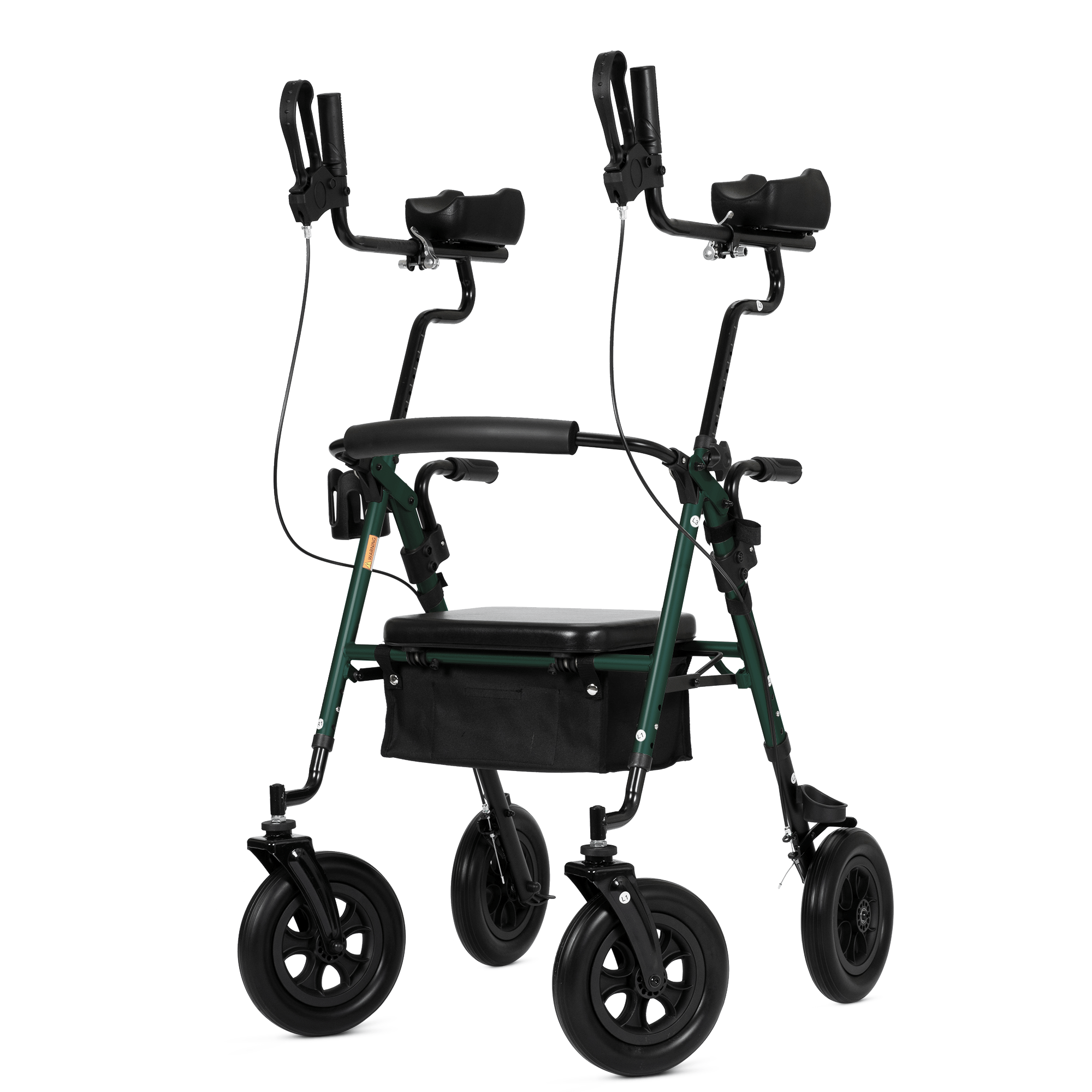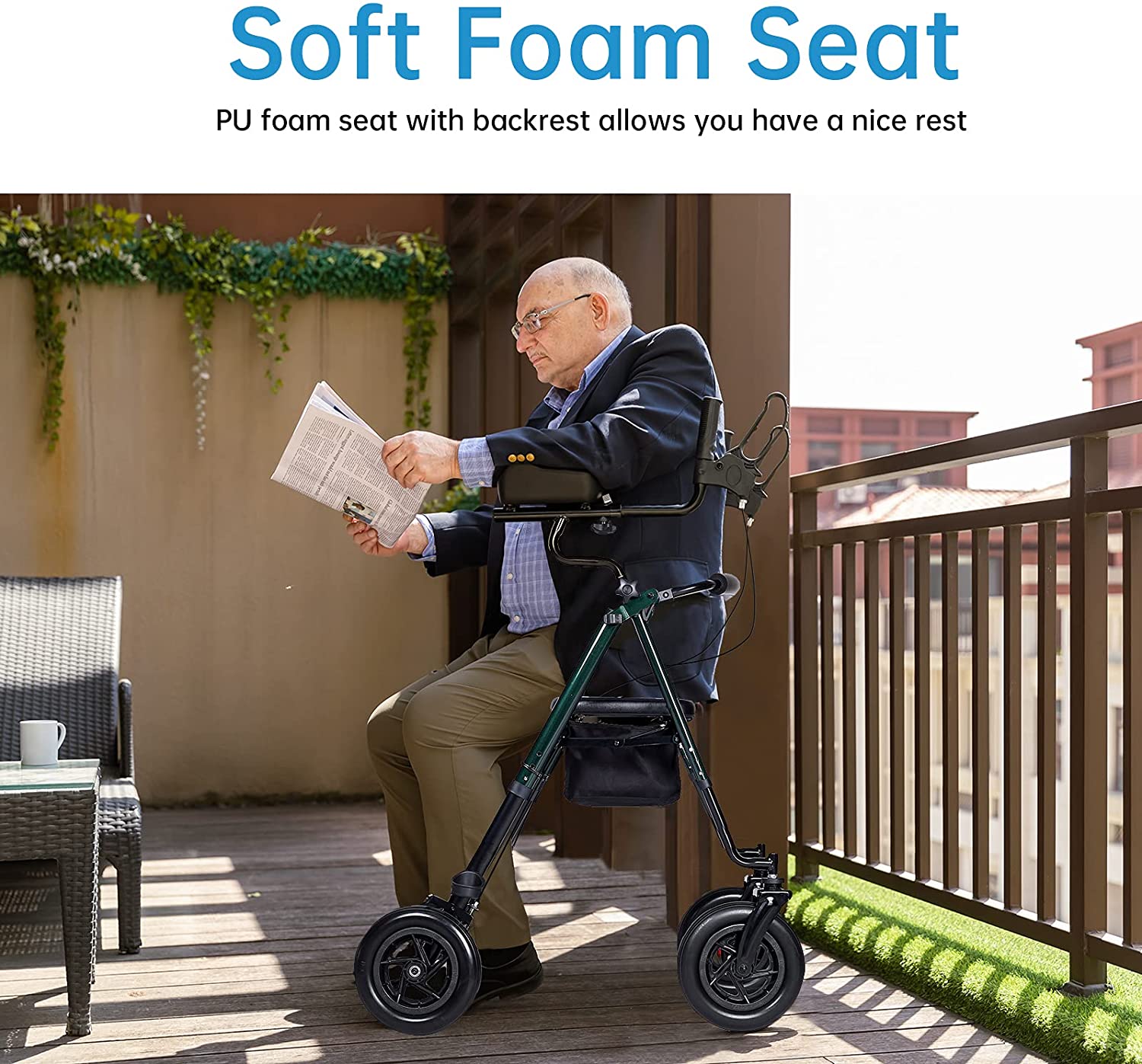Can You Use a Rollator with Congestive Heart Failure?
Apr 24, 2025
If you or someone you care about is living with Congestive Heart Failure (CHF), you probably know how important it is to stay mobile—but also how tricky it can be. Getting winded from just walking across the room? Yeah, that’s real. But here’s the good news: mobility aids like a rollator walker can seriously help.
What’s Congestive Heart Failure, Anyway?
Congestive Heart Failure doesn’t mean your heart stops working altogether. It just means your heart isn't pumping blood as well as it should. That can lead to fatigue, shortness of breath, and swelling in your legs and feet. Not exactly ideal when you're trying to stay active or just get to the kitchen.

Why Movement Still Matters
Even though CHF can make you feel wiped out, staying active (safely!) is key. Gentle movement helps with circulation, keeps your joints from getting stiff, and can even lift your mood. But here’s the catch: it has to be the right kind of movement—and that’s where a rollator walker or another assisted walker comes into play.
So, Can You Use a Rollator?
Yes, absolutely—with a little caution. Rollator walkers can be super helpful for people with heart issues, including CHF, because they give you support while walking and allow you to stop and rest when needed. That’s a big deal when you’re dealing with fatigue or dizziness.

Here’s why it works:
They’ve got seats. Most rollators come with built-in seats, so if you need to take a break, you can plop right down—no need to panic about finding a bench.
Wheels make walking easier. You don’t have to lift them like traditional walkers, so it saves you energy.
Brakes for safety. A walker with hand brakes means you’re in control. Just squeeze them when you need to slow down or stop.
Storage space. Some models even have a little basket or pouch, so you’re not carrying bags that could throw you off balance.
Which Rollators Are Best for CHF?
Not all rollators are created equal, especially if you're dealing with something as serious as heart failure. Look for these features:
1. Walker with Seats and Wheels
This is non-negotiable. That seat gives you peace of mind—you know you can rest if you need to. The wheels mean smoother movement with less effort.

HFK-9236T4 ELENKER Upright Rollator Walker with Padded Seat and Backrest
2. Walker with Hand Brakes
Control is everything. Whether you’re going uphill, downhill, or just need to stop quickly, good brakes keep things safe.
3. Stand Up Walkers with Seats
These keep you in a more upright position, which can help with breathing and posture. If hunching over a standard walker feels rough, a stand up walker with a seat could be a better fit.
4. High Walker for Elderly
This just means it’s designed for taller folks or for those who struggle with bending over. Less strain = more comfort.
5. Walkers for Outdoor Use
If you like being out and about (or at least need to get to your doctor’s office), you’ll want something with bigger wheels and better stability. Uneven sidewalks? No problem.
A Few Tips Before You Start Using One
Alright, let’s say you’re ready to try a rollator—awesome! But there are a few things to keep in mind, especially with CHF in the mix:
Talk to Your Doc
Seriously. This should be step one. Your doctor or physical therapist can help you choose the right walker and give you tips on how much walking is safe for you.
Start Slow
If you’re not used to walking with a rollator, don’t go for a mile-long stroll on day one. Start small and listen to your body.
Daily Use of HFK-9236T4 ELENKER Upright Rollator Walker
Take Breaks
That’s what the seat is for. Don’t wait until you feel exhausted—rest often and drink water, especially if it’s warm out.
Keep Emergency Info Handy
It’s not a bad idea to keep a card in your rollator’s pouch with your emergency contacts and medications, just in case.
Practice Inside First
Before you head out on the town, get used to turning, stopping, and using the brakes indoors where it’s safe.
What If I Feel Embarrassed?
We get it—using a walker can feel like a big step. But honestly? It’s a sign of strength, not weakness. You’re doing what you need to stay active and independent. Plus, these things are a lot more stylish and high-tech than they used to be. Some assisted walkers even come in fun colors or sleek designs.
And trust us—people care way less than you think. What they do notice? That you’re out and about, living your life.
Rollators vs Other Mobility Aids
You might be wondering: what about canes? Or regular walkers?
Canes might not offer enough support if your balance is off or if you get tired easily.
Traditional walkers without wheels are sturdy but take more effort to lift and move.
Rollator walkers hit that sweet spot: stability, ease of use, and the all-important seat.
If you’re dealing with Congestive Heart Failure, energy conservation is key, so rolling along with less effort is a major win.
Yes, you can use a rollator walker with Congestive Heart Failure, and it might actually make a big difference in your daily life. With the right features—like a walker with seats and wheels, hand brakes, and a supportive frame—you’ll feel safer, more independent, and more in control of your movements.
Just remember: talk to your healthcare provider, take it slow, and find a model that fits you. Whether it’s a high walker for elderly folks or one of the best walkers for outdoor use, there’s definitely a rollator out there with your name on it.
Stay safe, stay mobile, and keep rollin’.











